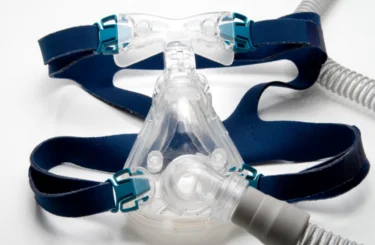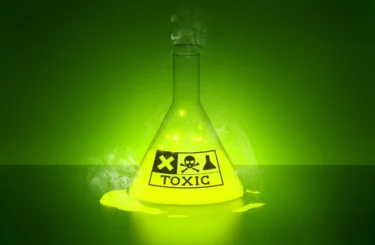
NHTSA Crash Report Highlights Safety Concerns With Self-Driving Cars
Are self-driving cars safe? As technology advances and becomes more affordable, more and more vehicles incorporate partial or completely autonomous driving systems. While manufacturers claim they may be safer than human drivers, there isn’t enough evidence to firmly support their position. Autonomous vehicles also introduce new safety risks, such as potential technology malfunctions that can cause car accidents.
The National Highway Traffic Safety Administration (NHTSA) collects data on motor vehicle accidents involving automated driving systems. In 2021, it began requiring carmakers to report crashes involving vehicles with advanced driver-assistance features.
Its first released report reflects the information collected between July 1, 2021, and May 15, 2022. Over the ten months, manufacturers reported 392 self-driving car accidents. These incidents resulted in severe injuries to five people and six fatalities.
The agency cautioned that it would not draw specific conclusions about autonomous vehicle safety based solely on this initial data. The NHTSA will continue to collect information and publish future data, analysis, and recommendations to promote driving safety.
Tesla Vehicles Accounted for the Most Crashes
Tesla vehicles operating with Autopilot technology or full self-driving beta mode were involved in 273 of the 392 crashes reported by the NHTSA. Five of these collisions were fatal. Honda models were linked with 90 other accidents, while Subaru vehicles accounted for 10. Ford, Toyota, and other car manufacturers each reported five or fewer crashes.
One possible explanation for why around 70 percent of crashes in the report involved Tesla vehicles is that the company dominates the market. Tesla is one of the largest manufacturers of autonomous cars; around 830,000 of its U.S. vehicles have the Autopilot system or other self-driving features. Nissan has 560,000 vehicles with autonomous capabilities on U.S. roads. While automakers like Ford and General Motors manufacture models with similar features, their sales have been significantly lower.
The NHTSA is investigating Tesla’s Autopilot system to determine whether it has technological or design defects that pose safety risks. In November 2021, Tesla recalled nearly 12,000 vehicles that were part of its full self-driving beta testing, enabling Autopilot use on city streets. The company said a software update could cause car accidents by unexpectedly triggering the emergency braking system.
What Does the NHTSA Data Mean?
While Tesla and other companies have claimed their driver assistance technologies are safer than relying solely on human control, the NHTSA continues to examine how self-driving vehicles perform in real-world situations.
NHTSA officials caution that the report’s data is too limited to identify safety trends or draw significant conclusions. For example, no data reflects the number of vehicle miles driven, making it impossible to determine whether one automaker’s vehicles are more likely to crash. Additionally, descriptions of what happened during collisions were unavailable; accidents have many causes besides driver error, so that this omission could lead to numerous unwarranted conclusions.
Another factor that complicates the analysis of this aggregate data is that each automaker uses different types of driver-assistance technology. Some, like Tesla’s Autopilot mode, can take nearly complete control of the vehicle. Other automated systems, like those of BMW and Ford, perform only specific functions, like parallel parking assistance, adaptive cruise control, or lane keeping.
The NHTSA intends to continue gathering data to identify emerging trends and monitor how self-driving technologies perform in the real world. The agency will use the data it collects to develop autonomous vehicle design, use, and safety regulations.
Self-Driving Cars in Michigan
Michigan continues to be a leader in the U.S. automotive industry, including designing and developing autonomous vehicles. It was one of the first states to adopt legislation enabling automakers to test entirely self-driving, unmanned vehicles on public roads.
The startup Cavnue is designing the nation’s first network of connected and automated vehicle corridors – starting in Michigan. The firm is partnering with state and local governments to build dedicated roadways and infrastructure for automated vehicles. It has begun adapting a 25-mile stretch of Interstate 94 near Detroit for autonomous vehicle traffic in conjunction with the Michigan Department of Transportation.
Safety Concerns With Autonomous Vehicles
While autonomous driving systems offer many benefits, this complex technology is still evolving and far from perfect. Self-driving cars can cause accidents that result in serious injuries or even death.
One of the main issues with automated and driver-assistance features is that they can lull drivers into a false sense of security. Most autonomous vehicles still require some level of driver interaction, and their performance must be monitored in case of failure. Drivers must stay alert and take control of the car when necessary. Any distraction or failure to pay attention when the automated system requires driver control can lead to serious collisions.
For example, an advanced driver-assistance system that can brake and adjust speed on its own could malfunction and fail to adapt to a particular situation. A driver who is carefully paying attention might be able to brake manually and prevent a collision, while one relying on the system may not.
Car Accidents and Self-Driving Vehicles
You may be entitled to compensation if you were injured in a car accident caused by an autonomous vehicle. This can include compensation for your medical expenses, property damage, lost income, and pain and suffering. Since nearly all vehicles with automated driving systems still require human interaction, you have the right to pursue compensation from the driver behind the wheel when the crash occurred.
Despite autonomous features, drivers are still responsible for staying alert and intervening when necessary. They can be liable for improperly complacent or negligent behavior, such as distracted or drunk driving.
The car manufacturer may sometimes be liable if a defective part or faulty system causes a collision. An experienced Detroit car accident attorney can help you determine whether you may have a claim against an at-fault driver, manufacturer, or another liable party.
Contact the Car Accident Lawyers at Sommers Schwartz
The Detroit car accident lawyers at Sommers Schwartz help crash victims recover the compensation they deserve. Whether your collision involved a self-driving car or another type of vehicle, we are here to help. Contact us today to learn more.
Muskan Ali
Muskan Ali represents plaintiffs in complex, life-altering medical and pharmaceutical malpractice claims, equal protection, and due process claims (1983 claims), as well as auto, premises, and product liability claims involving personal injury and wrongful death.





